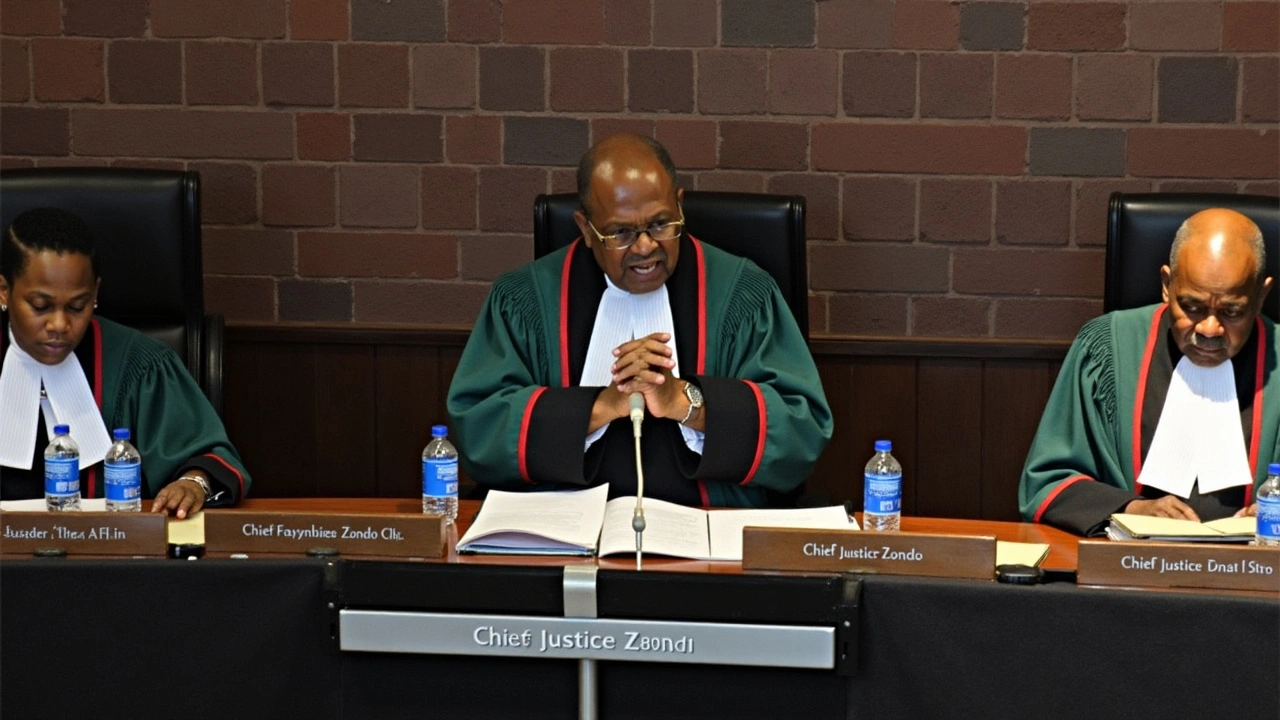Chief Justice Raymond Zondo's Final Verdict Rescues Soldier's Decades-Long Battle Against Military Dismissal
Introduction
It has been more than two decades since a soldier, whose identity remains undisclosed, began a relentless legal battle against his dismissal from the South African National Defence Force (SANDF). This protracted dispute, which dates back to the late 1990s, has drawn to a notable conclusion with a decisive ruling by Chief Justice Raymond Zondo. This landmark judicial decision holds profound implications not only for the soldier but also for the integrity of public institutions and the pursuit of justice.
The Long Road to Justice
The soldier’s struggle began in the late 1990s when he was unexpectedly axed from the SANDF. Believing the dismissal to be unjust, he embarked on a legal journey that spanned several decades, navigating through a labyrinth of legal complexities and procedural hurdles. His unwavering determination to seek redress underscored a deep-seated belief in the righteousness of his cause. Throughout this period, he faced numerous setbacks, but his resolve never wavered.
In many ways, the length and intricacy of this case reflect broader systemic issues within military and legal establishments. Typically, cases of this nature can become entangled in bureaucratic red tape, leading to prolonged delays and mounting frustrations for those seeking justice. This soldier’s case is emblematic of such challenges, highlighting the need for more efficient mechanisms to address grievances within public institutions.
Role of Chief Justice Raymond Zondo
Chief Justice Raymond Zondo’s involvement in this case marked a turning point. Recognized for his astute legal acumen and unwavering commitment to justice, Zondo brought a sense of urgency and clarity to the proceedings. Carefully examining the nuances and details that had accumulated over the decades, he identified key points of contention and sought to deliver a fair and balanced judgment.
In his final ruling, Chief Justice Zondo emphasized the principles of justice and fairness, stressing that every individual deserves a fair hearing and a just resolution. His decision to reinstate the soldier in the military is not only a personal victory for the individual involved but also a powerful reaffirmation of the judiciary's role in upholding the rights of citizens, particularly those serving in public institutions.
Implications of the Verdict
The immediate impact of this ruling is the reinstatement of the soldier’s career within the SANDF. After decades of uncertainty and legal wrangling, he now has the opportunity to resume his role and contribute to the military—a dream that had been put on hold for far too long.
Beyond the individual case, this verdict sets an important precedent. It underscores the judiciary's responsibility to ensure that public institutions, like the SANDF, operate within the bounds of fairness and justice. By resolving this long-standing dispute, the court has sent a clear message that legal recourse is available and effective, even in the face of systemic challenges and delays.
Broader Systemic Changes
One of the significant takeaways from this case is the apparent need for systemic reforms within both the military and legal systems. Prolonged legal battles can be detrimental, not only to the individuals directly involved but also to the integrity and efficiency of public institutions. There is a pressing need for streamlined processes that can address grievances more expediently, ensuring that justice is not only done but also seen to be done within a reasonable timeframe.
In addition, this case highlights the importance of accountability within public institutions. Dismissals and other significant actions should be thoroughly reviewed and justified to prevent unwarranted disputes and legal battles. Establishing transparent mechanisms for reviewing such decisions can help build trust and confidence in these institutions.
Conclusion
Chief Justice Raymond Zondo’s ruling represents a triumph of justice and fairness. It is a testament to the perseverance of an individual who refused to give up on his quest for rectitude, despite the formidable challenges he faced. This case serves as a reminder of the critical role that the judiciary plays in protecting the rights of individuals and ensuring that public institutions adhere to the highest standards of justice.
As the soldier prepares to rejoin the SANDF, his journey stands as an inspiration for others facing similar struggles. It is a poignant example of how dedicated pursuit of justice, backed by a fair and robust legal system, can ultimately lead to the vindication of one’s rights and the reinstitution of their rightful place in society.
